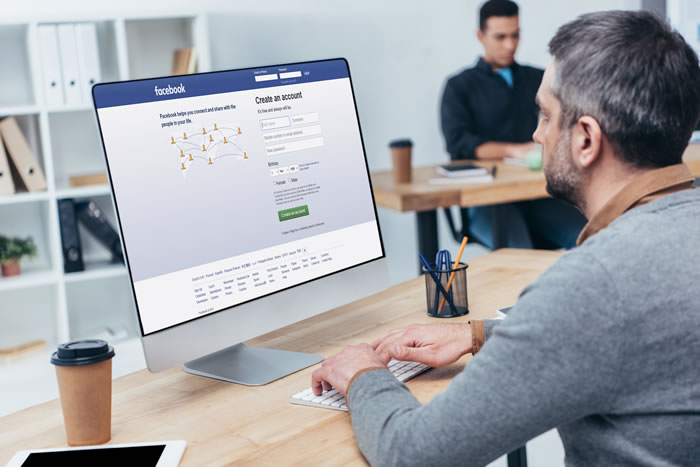Does your business really need a website? Well, yes and no. Ask any expert, and they’ll tell you to seriously consider setting up a business website. But maybe when you look at your business journey, you’ve crossed milestones beyond your expectations. And you’ve made it this far without the help of a website. It’s only natural to wonder whether investing in a website for your business makes sense.
So, does Your Business Need a Website?
Yes, having a well-designed website can make a notable difference, regardless of your company size or industry. Contrary to popular belief, websites aren’t only crucial for eCommerce or online businesses. Your organisation could benefit even if you don’t sell anything online.
The digital transformation that took off during 2020-2022 has permanently shifted customer expectations. What began as emergency measures has become standard business practice. If your competitors have established strong online presences, you’re essentially handing them your share of leads on a silver platter.
Most companies understand how effective a strong online presence can be. However, many choose to have a digital presence only through business pages on social media platforms like Facebook, Instagram, LinkedIn, and X (formerly Twitter). Can a social media business page take the place of a website? Or do you need both?
What We’ll Cover in This Post
- Whether you need a business website, even if you have a social media page
- Top reasons why your company needs to create a business website in 2025
- Circumstances under which you might not need a website
- Modern compliance and technology considerations you should know about
Do You Need a Business Website If You Have a Social Media Page?
Advertising through social networks like Facebook, Instagram, LinkedIn, TikTok, and X has plenty of benefits. Social media platforms help you share information in real-time, engage your audience, collect customer feedback for market research, build a larger following, and much more.
While these platforms may have proved beneficial to your organisation, don’t treat them as a replacement for a business website. You shouldn’t have to choose one over the other. A website should work hand-in-hand with your social media presence for the best results.
Why You Shouldn’t Rely Only on Social Media Pages
Credibility Concerns
Your business needs to demonstrate credibility to attract and convert leads. If your social media business account isn’t verified, some visitors might be sceptical about doing business with you.
You’ll notice that many verified pages are backed by professional websites. A business website gives your potential customers confidence that you’re a legitimate company they can trust.
Most Searches Start on Google
When people need to find a business for a specific purpose, they usually turn to Google and other search engines rather than social media. Google maintains over 92% of the search engine market share and processes approximately 8.5 billion searches per day in 2025.
Search engines provide more comprehensive information that helps users make better purchasing decisions. Google may show your business when users search for queries related to the products or services you offer, whether through traditional text searches or voice queries via smart devices.
Your company can significantly increase its chances of attracting more qualified leads by optimising your website for local searches and voice search optimisation.
Social Networks Own Your Business Pages
Businesses may think they own their social media profiles, but the reality is quite different. The platforms make the rules, and they can change them at any point.
We’ve seen numerous examples of this: algorithm changes that drastically reduce organic reach, policy updates that affect business accounts, and even complete platform transformations (like Twitter becoming X). You could lose all the online clients or followers you’ve worked hard to gain over the years.
When you have a business website, you’re in control. Your website can stay alive and safe for as long as you want. You have the freedom to promote or share anything you want (videos, images, reviews, AI chatbots, etc.). You decide on website design, accessibility features, and functionality to make your site more appealing to visitors.
Consumers Are Overwhelmed by Social Media Ads
On average, people spend approximately 2.5 hours on social media daily in 2025. This creates intense competition among businesses fighting for attention.
When you compete with hundreds of local businesses to create ads targeting users in a specific location, your target audience encounters multiple business ads while they’re trying to engage with friends or consume content. Unfortunately, many users actively ignore or block ads.
The attention you get with a website is completely different. Visitors willingly click through to your site because search engines or direct referrals have suggested you might be helpful to them. These are people who’ve already shown genuine interest in your services or products.
Top Reasons Why Your Company Needs a Business Website in 2025
1. Make a Professional Impression and Build Trust
Your website isn’t just a great way to convince customers you’re a credible business (it’s also proof that you’re a professional, established company).
Fraudsters and scammers are everywhere, including social media. Since it’s free to set up business accounts on most platforms, scammers can easily create fake profiles. Some even impersonate legitimate businesses.
Customers understand that maintaining a high-quality website requires ongoing investment: domain registration, hosting, SSL certificates, compliance measures, AI integration, SEO, and regular updates. They know that only serious organisations make this kind of financial and time commitment.
2. Boost Your Business Visibility Online
When you have a website, you can implement modern SEO strategies, including:
- Traditional keyword optimisation
- Voice search optimisation
- Core Web Vitals improvement
- Mobile-first design
- AI-powered content optimisation
These strategies ensure your website appears higher on Google search engine results pages (SERPs). With over 5 billion internet users worldwide in 2025, and 95% accessing the internet primarily through mobile devices, the opportunity for visibility is enormous.
3. Leverage AI and Modern Technology
Modern websites can incorporate AI-powered features that dramatically enhance user experience:
- Intelligent chatbots for 24/7 customer service
- Personalised content recommendations
- Automated appointment scheduling
- Real-time language translation
- Voice search compatibility
These technologies can significantly improve customer satisfaction while reducing your operational costs.
4. Provide Essential Social Proof
Providing social proof remains one of the most effective ways to build trust with potential customers. Reviews are still the most valuable form of social proof.
Approximately 91% of customers read online reviews before doing business with local companies in 2025. Instead of relying solely on third-party review sites, you can collect customer testimonials and strategically display them on your website alongside video testimonials and detailed case studies.
5. Serve as Your Ultimate Customer Destination
Successful businesses use multiple marketing channels (social media, email marketing, paid advertising, content marketing), but these channels typically direct potential clients to one destination: your website.
When prospects click on ads, QR codes, or social media posts, they expect to land on a professional website to learn more. Without this destination, you’ll likely lose interested prospects who start questioning your legitimacy.
Your website serves as your digital headquarters where customers can find comprehensive information, make purchases, book services, or contact you directly.
6. Dominate Local Markets
Local search has become even more critical since 2020. A website optimised for local searches can significantly boost your revenue. Recent 2024-2025 local search statistics show:
- 98% of consumers search online for local business information
- 76% of people who search for local businesses visit a store within 24 hours
- 46% of all Google searches have local intent
- 82% of smartphone users conduct local searches
Local search optimisation, combined with Google Business Profile management, creates a powerful combination for attracting nearby customers with high purchase intent.
7. Achieve Better Return on Investment
Content marketing through websites provides lasting value. Blog posts, service pages, and resources created years ago can continue ranking on search engines and generating leads indefinitely.
Social media campaigns, while valuable for engagement, have limited lifespans. Posts disappear from feeds quickly, and paid campaigns end when budgets run out. Website content, however, can compound in value over time through improved search rankings and accumulated authority.
8. Improve Customer Service and Accessibility
Modern websites can significantly improve customer service through:
- Comprehensive FAQ sections
- AI-powered chatbots that handle common inquiries
- Online appointment booking systems
- Live chat integration
- Self-service portals
Additionally, websites must now meet accessibility standards (WCAG 2.1 AA compliance), ensuring your business serves customers with disabilities. This isn’t just good practice (it’s increasingly required by law and can protect you from accessibility lawsuits).
9. Ensure Legal Compliance
In 2025, websites must comply with various regulations:
- Privacy Laws: GDPR, CCPA, and other regional privacy regulations require clear privacy policies and cookie consent mechanisms
- Accessibility: ADA compliance and WCAG guidelines protect against discrimination lawsuits
- Local Requirements: Many jurisdictions have specific disclosure requirements for business websites
Having a compliant website protects your business legally while demonstrating professionalism.
10. Stay Competitive
Website ownership isn’t optional for most businesses anymore (it’s simply the cost of doing business). Google’s algorithms don’t favour large companies over small ones; they favour well-optimised websites with quality content, fast loading speeds, and excellent user experience.
Small business websites regularly outrank large corporations in local searches when they’re properly optimised. The competition is about execution, not company size.
11. Capitalise on Growing eCommerce
Global eCommerce sales reached $6.2 trillion in 2024 and continue growing rapidly. Even if you don’t run a traditional online store, customers increasingly expect to:
- Browse services online
- Make appointments digitally
- Pay online
- Access services outside traditional business hours
A website enables you to capture this growing market segment.
12. Attract Top Talent
In today’s competitive job market, potential employees research companies online before applying. A professional website demonstrates:
- Company stability and legitimacy
- Company culture and values
- Growth trajectory
- Professional standards
Top talent increasingly expects employers to have strong digital presences. Your website can be a powerful recruitment tool.
When You Might Not Need a Website
While having a business website makes sense for most companies, there are a few limited exceptions:
1. Highly Regulated Industries with Restrictions
Some heavily regulated industries may have restrictions on digital marketing or online presence. However, these situations are becoming increasingly rare.
2. Extremely Niche B2B with Established Relationships
If your business operates in a very specific niche where all customers come through long-established relationships and referrals, and you have absolutely no interest in growth, a website may not be immediately necessary.
3. Temporary or Project-Based Businesses
Short-term ventures or one-time projects might not justify website investment, though even these often benefit from simple landing pages.
Modern Considerations for 2025
Sustainability
Green hosting and sustainable web practices are increasingly important to environmentally conscious consumers. Consider eco-friendly hosting providers and optimised code to reduce your website’s carbon footprint.
Performance Optimization
Google’s Core Web Vitals are now crucial ranking factors. Your website must load quickly, be interactive rapidly, and provide visual stability to rank well and satisfy users.
Mobile-First Design
With mobile traffic dominating, your website must be designed primarily for mobile users, with desktop as a secondary consideration.
Security
Cybersecurity threats continue evolving. Regular updates, SSL certificates, and security monitoring are essential for protecting your business and customer data.
So, To Summarise
In 2025, the question isn’t really whether your business needs a website (it’s what kind of website will best serve your goals). The digital transformation that accelerated in 2020 has permanently changed customer expectations and business practices.
A well-designed, compliant, and optimised website serves as your digital headquarters, credibility anchor, and growth engine. While the initial investment requires careful consideration, the long-term benefits typically far outweigh the costs for most businesses.
The size of your business doesn’t matter. What matters is your commitment to meeting customers where they are, and increasingly, that’s online.
Whether you’re a local bakery, a consulting firm, or a manufacturing company, your potential customers are looking for you online. The question is: will they find you, or will they find your competition instead?
Further Reading
For the latest statistics and trends in digital business:
[Updated: June 2025]







